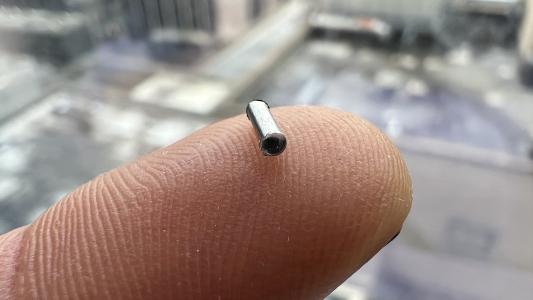It was only two years ago that the WHO gave the nod to the first vaccine for malaria, developed after decades of work by British pharma giant GSK. Now, there’s already a more effective vaccine, also from researchers in the UK, being approved by regulators.
A parasitic infection spread via mosquitoes, malaria is responsible for the deaths of hundreds of thousands of children per year, as well as sickening hundreds of millions people. It is one of the world’s biggest killers of children under five and a particularly tricky pathogen to vaccinate against.
But recent progress in vaccination is beginning to snowball: a second, more effective vaccine has now received regulatory approval in Ghana and Nigeria. Nigeria suffers the most malaria cases in the world, accounting for a staggering 27% of global malaria cases in 2021.
Malaria’s global burden is great. It threatens nearly half the world, infecting hundreds of millions and killing over 600,000 people per year.
A public health nightmare: Malaria is caused by the Plasmodium parasite, spread between humans via the blood-sucking bite of infected Anopheles mosquitoes.
While largely eradicated from the developed world, malaria’s global impact is considerable. The WHO estimates that there were 247 million cases of malaria around the world in 2021, killing 619,000 people — more than the population of Baltimore — in one year, to a curable disease.
The African region accounted for the lion’s share of the burden: 95% of confirmed cases and 96% of deaths. Cruelly, children under the age of five made up 80% of fatalities.
Fighting back: Ghana and Nigeria have now become the first places in the world to approve use of the vaccine, “R21/Matrix-M” (which sounds like the name of a Star Wars droid).
Developed at the University of Oxford and manufactured by the Serum Institute of India — the world’s largest vaccine manufacturer — R21/Matrix-M is designed to be cranked out at a low cost and a massive scale, two key concerns for fighting disease effectively in developing countries.
“We have submitted our file to the WHO for approval and are optimistic that it will be approved this year,” Serum Institute CEO Adar Poonawalla tells Freethink. “In the meantime, it is common for individual countries to grant their own approvals, as it is in the case of Ghana and Nigeria.”
In early trials, the vaccine looked to be 77% effective against severe cases of malaria up to a year after dosing — compared to just 30% for the GSK vaccine endorsed by the WHO. In September of 2022, the company announced the top line results of a booster, which provided 80% protection a year later. (Those without a booster still showed 70% efficacy.)
Data from a big phase 3 trial taking place in Burkina Faso, Mali, Kenya, and Tanzania is expected later this year, according to FiercePharma.
Oxford’s malaria vaccine has been approved for use in children by Ghana and Nigeria.
Leading the way: Ghana and Nigeria each approved the vaccine within days of one another.
Ghana, which suffered an estimated 5.3 million infections and 12,500 deaths in 2021, licensed the vaccine to be used by its Food and Drugs Authority. The vaccine is approved for the use in children from five months to three years old, the group at the highest risk of death, according to a release from Oxford.
“This marks a culmination of 30 years of malaria vaccine research at Oxford with the design and provision of a high efficacy vaccine that can be supplied at adequate scale to the countries who need it most,” Adrian Hill, the chief investigator of the R21/Matrix-M program, said in a statement.
Mere days later, Nigeria’s National Agency for Food and Drug Administration and Control (NAFDAC) approved use of the vaccine.
The NAFDAC’s decision has “been communicated to the minister of health and national primary health care development agency for appropriate actions toward immunisation in the respective population,” director general Mojisola Adeyeye said in a press briefing, reported The Guardian.
As in Ghana, Nigeria’s approval is for children from 5 to 36-months of age.
As the world leader in cases, Nigeria pays a hefty financial toll; the largest economy in Africa loses an estimated $1.1 billion per year thanks to malaria, Quartz reported.
The NAFDAC found that “the vaccine’s known and potential benefits outweigh its known and potential risks, thereby supporting the manufacturer’s recommended use,” Adeyeye said, but the director general emphasized that a phase 4 study should be implemented in Nigeria to continue to study how the vaccine performs in the real world.
In the meantime, while immunization programs have yet to begin, the Serum Institute has begun production.
“To ensure the availability of the R21 vaccine in time for the upcoming Malaria season, we are making 20 million doses in advance and at-risk, which will be available in the next two months for African countries to procure if they choose to do so,” Poonawalla says.
Editor’s note: This story was updated 5/2/2023 to add comment from Serum Institute CEO Adar Poonawalla.
We’d love to hear from you! If you have a comment about this article or if you have a tip for a future Freethink story, please email us at [email protected].






